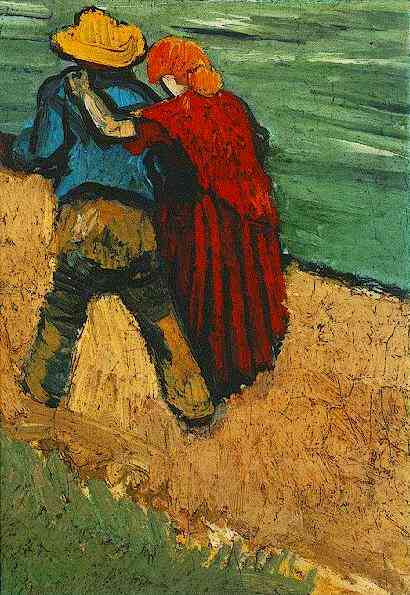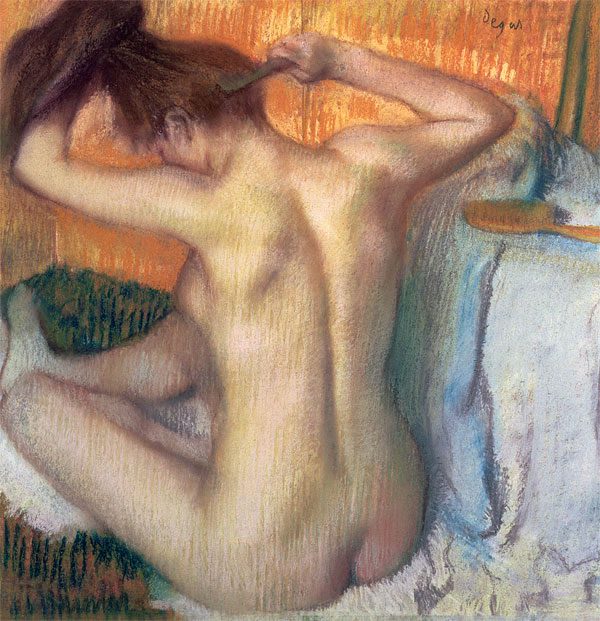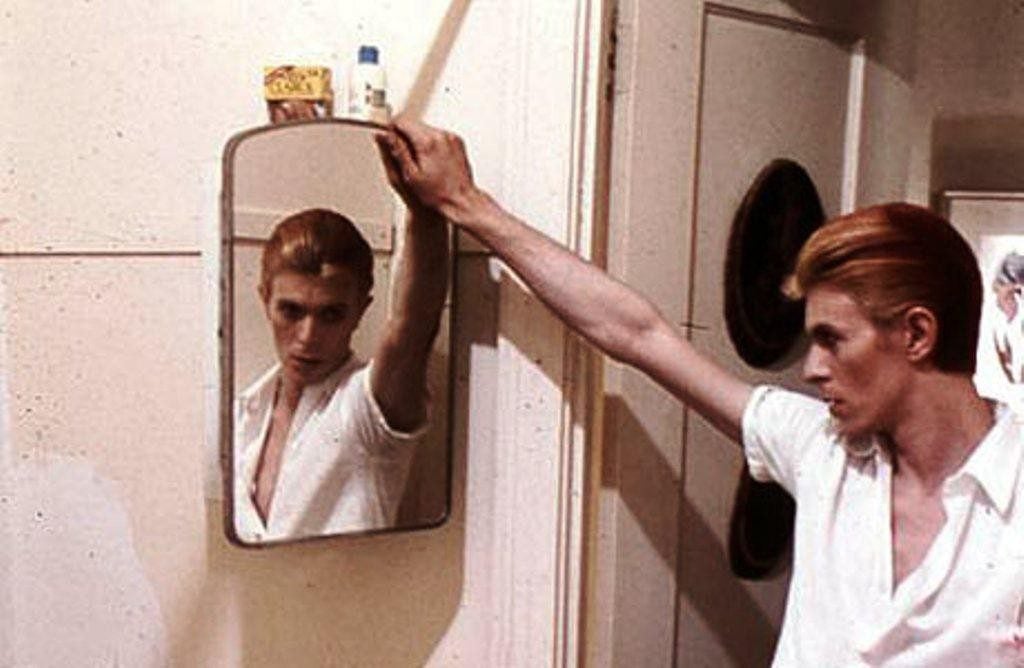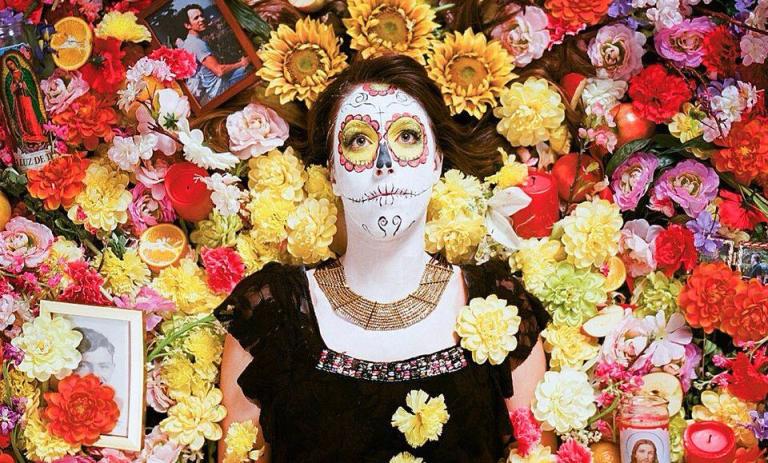 Beauty begets love. A flutter and twitch of female lashes can crush a man’s heart like a Bud Light can under a steamroller. A father who spends the day immersed in the beauty of the Shenandoah Valley returns by night with hugs for his children and a softer touch for his wife. Beauty begets love, as sunlight wakens sleepers, and I hope this an obvious experience, if not an obvious phrase.
Beauty begets love. A flutter and twitch of female lashes can crush a man’s heart like a Bud Light can under a steamroller. A father who spends the day immersed in the beauty of the Shenandoah Valley returns by night with hugs for his children and a softer touch for his wife. Beauty begets love, as sunlight wakens sleepers, and I hope this an obvious experience, if not an obvious phrase.
Love likewise begets beauty. Beautiful art is a “labor of love.” Love has poetry gush from the dry well of a man’s imagination, music from a girl ashamed to sing, and literature from the lonely.
The reason for this relationship is not that the two are both glorious, wonderful, and likely to be pasted in Helvetica over instagrammed pictures of middle-schoolers making out on a beach. Beauty and love are bonded by their similar operations within the human person.
To appreciate a thing as beautiful is to appreciate it as useless, not because it is trash, but because it is real treasure. That which is beautiful is good in and of itself. We do not appreciate the beautiful in regards to how we can use it, change it, or by what it can do for us. We appreciate the beautiful for being, for presenting itself to our intellect — for existing.
Think of a few things which most human beings would agree to crown with the predicate “beautiful”. The Pieta, Mozart’s Requiem, the cool morning sun spilling through summer leaves, a fiery New England autumn, stained glass: What could we answer the man who asks us for the use of these things? We couldn’t, besides to babble an incoherent, self-contradicting set of phrases: “Its use is to be. It is for its own existence. It is here to be beautiful.” We may — in an attempt to make ourselves at least partially rational beings — say that we do use these things: We use them to experience the peace and delight they give to us. But this is only to say we experience beautiful things in order to have an experience of beauty. There is no outside end.
If a man were to view a Degas solely with the mindset that by purchasing it, he would become famous, respected, and mentioned at cocktail parties, he does not consider the painting beautiful. It is a means to an end. It is merely useful. The man who travels miles to see the same Degas for no other reason to see the Degas — he has come to see beauty, for the Degas is useless to him.
Or consider pornography. Why does no one — except the inhumanly hip — consider pornography beautiful? The nude body is beautiful, as Botticelli’s Venus will testify. Sex is beautiful, as thousands upon thousands of humans will testify. Good cinematography is beautiful (and with the angle work, lighting, soundtrack and all the rest, pornography certainly has the capacity to indulge in real cinematography). Why then, is the sum of all these — the pornography itself — so far removed from beauty? Because pornography is useful.
It is appreciated insofar as it achieves a goal outside of itself — sexual pleasure. It is useful, which is only to say it is not appreciated for its own sake. It is not admired for simply being. It is used, and the beautiful has no more to do with “use” then, well, then love has to do with use. And thus we arrive at the connection.
Love in its fullness adores the useless. I may claim to love a girl for her uses, her purposes, an emotion she grants me, or a pleasure, or a security. But when all is said and done, I either love her or I love not at all. This is not to say that romantic love should be without its gifts, gains, pleasures and glories, but that love would still adore the beloved if all these things were stripped away. When the poems are written, the flowers faded, and the faces wrinkled, love still desires the ultimate good of its beloved, the good of the person, beyond any conceivable use.
But this has a fascinating implication as to what the hell we’re doing here. I’ve been forever nagged by the question an atheist once asked me: If there is a God, why did he create us? The routine catechism answer — “to know, love and serve Him” — didn’t cut it for me, in part because it seems circular, in part because — taken stupidly — it makes God out to be the needy, whining, patriarch that Richard Dawkins is so darn frightened of. If God is love, if he exists in the absolute perfection of love, totally self-fulfilled, then why would he create man, knowing the mess we’d get into? He doesn’t need us. We are useless to him.
And then I stopped. Because that’s precisely the answer. We are useless to him. We are as utterly, incredibly useless as the Pietas and solar eclipses and Blue Ridge Mountains of this universe. We are useless, and God is love, and love revels and delights in the useless. What are we then, we of arms and teeth and hearts and hair? We are the art of God, his beautiful ones, for our whole worth lies in the fact that he loves us, as the whole worth of something as useless as Mozart’s Requiem lies in the fact that we appreciate it as such, that we appreciate it as beautiful, that we appreciate it as useless.
The whole reason for our existence is that there is no reason for our existence. The greatest compliment we can give a man is to embrace him and say: There is no reason for you! None at all. You are utterly useless, for you are begotten by Love. And our response to this fact can be none other than love for each other. For beauty should beget love, and humans are beautiful in their uselessness. We should likewise cease to use each other, for there is therefore nothing more contradictory to humans — who have no use — than to be used.
I write this like a drunk, and it’s time to sober up. After all, the attempt to find similarity between our own experience and that of God’s is bound to find a greater difference. But we can take comfort that, in a world obsessed with appropriating worth based on wealth, status, looks, name, race, religion, and all the rest, our true worth is only this, that we are loved.













